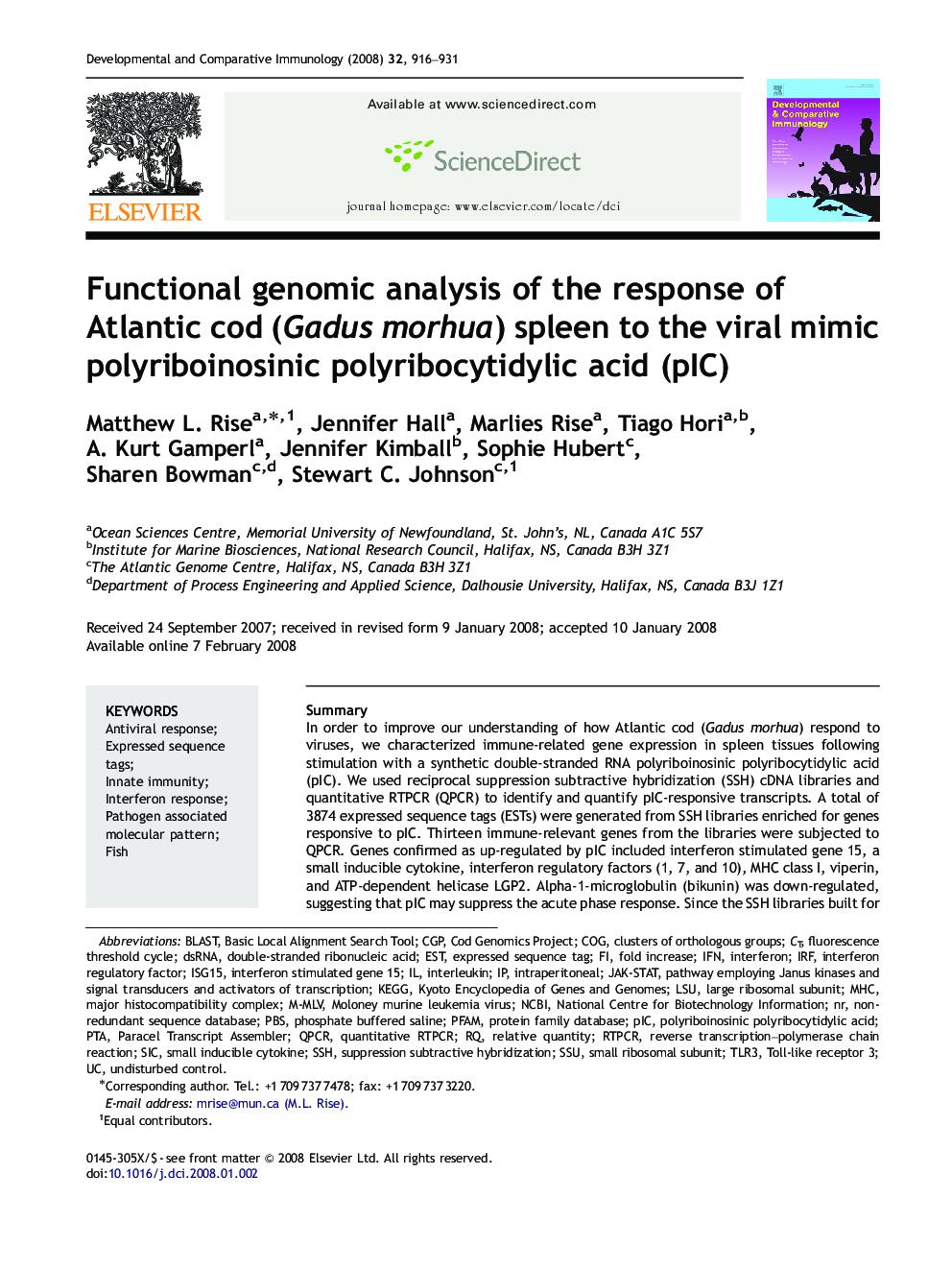| Article ID | Journal | Published Year | Pages | File Type |
|---|---|---|---|---|
| 2430036 | Developmental & Comparative Immunology | 2008 | 16 Pages |
SummaryIn order to improve our understanding of how Atlantic cod (Gadus morhua) respond to viruses, we characterized immune-related gene expression in spleen tissues following stimulation with a synthetic double-stranded RNA polyriboinosinic polyribocytidylic acid (pIC). We used reciprocal suppression subtractive hybridization (SSH) cDNA libraries and quantitative RTPCR (QPCR) to identify and quantify pIC-responsive transcripts. A total of 3874 expressed sequence tags (ESTs) were generated from SSH libraries enriched for genes responsive to pIC. Thirteen immune-relevant genes from the libraries were subjected to QPCR. Genes confirmed as up-regulated by pIC included interferon stimulated gene 15, a small inducible cytokine, interferon regulatory factors (1, 7, and 10), MHC class I, viperin, and ATP-dependent helicase LGP2. Alpha-1-microglobulin (bikunin) was down-regulated, suggesting that pIC may suppress the acute phase response. Since the SSH libraries built for this study identified genes involved in the antiviral response, they are important resources for studying the responses of Atlantic cod to viruses. Evidence is provided for the existence of a RIG-I-like RNA helicase viral recognition pathway in Atlantic cod. Taken together, our data show that Atlantic cod can recognize double-stranded RNA and mount a rapid and potent interferon pathway response that is similar to that observed in other fish species and higher vertebrates.
